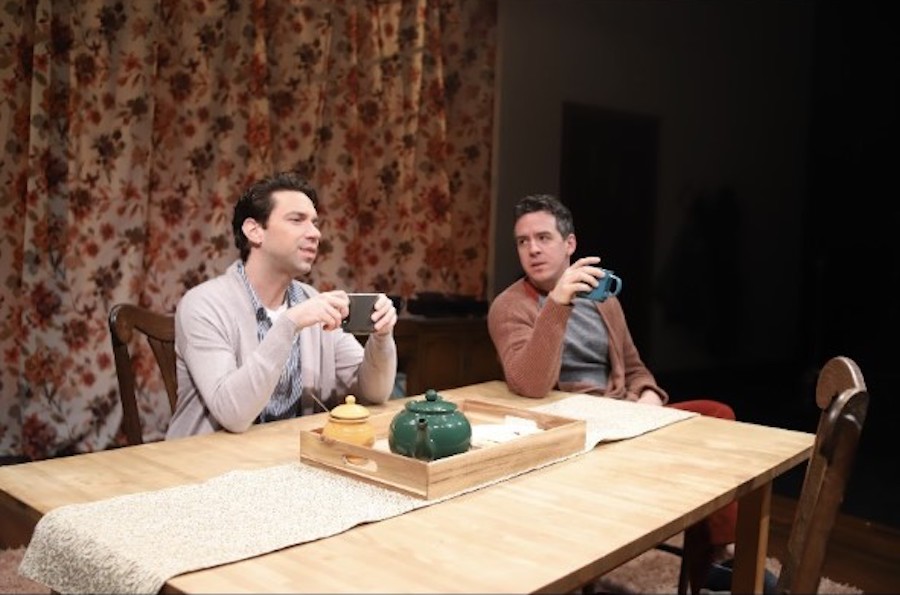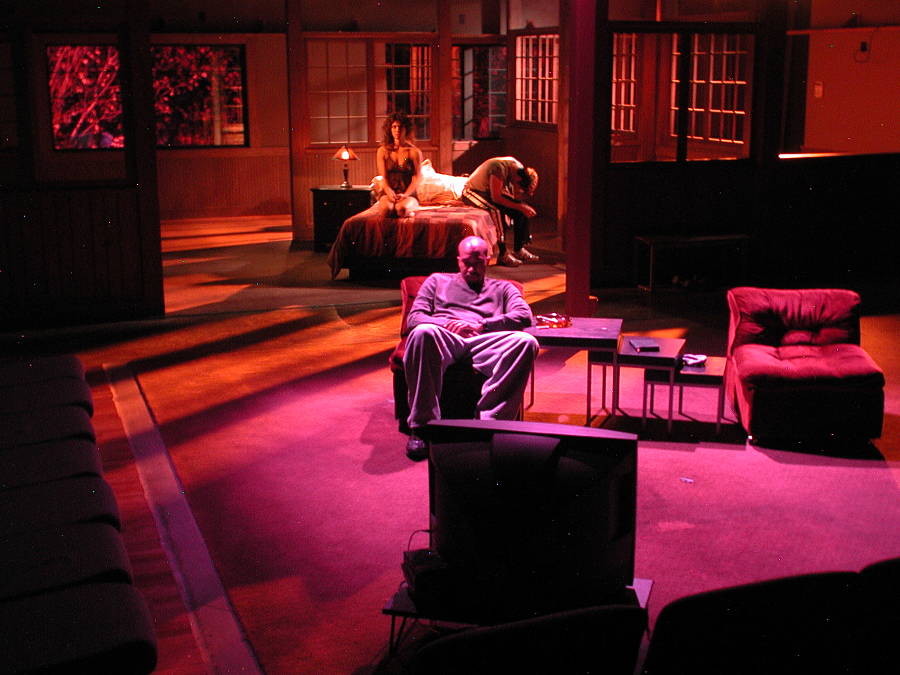When looking at theatre in the mid-Atlantic region that includes New York, Pennsylvania, and New Jersey, it’s easy to be distracted by the giant sucking sound that is the vacuum of Broadway’s prolonged absence. But outside of the high profile for-profit theatres of Manhattan, theatres throughout the region are facing their own difficult choices as they also determine whether January 2021 will mark their return or another moved goalpost. In the meantime, as theatres wait to find a way back to the stage, these mid-Atlantic theatres have learned to lean on community engagement and new initiatives to find unconventional solutions to an unprecedented problem.

The Kitchen Theatre in Ithaca, N.Y., got through one full tech run-through of Mia Chung’s Catch As Catch Can before the shutdown. The theatre came up with a creative way to stay engaged with its community, and play off its name, with an online challenge called #MyKitchenTheatre, in which patrons were encouraged to film a 20-second video of themselves creating art in their kitchen.
Alternate ways of performing, changes in the artistic process, new physical spaces: All of these options are on the table for David Winitsky, the Kitchen’s brand-new interim producing director. Having been on the job for one full week when we spoke to him, Winistsky said the theatre is at least temporarily in a secure financial spot thanks to emergency funding and patrons donating more than $67,000 worth of canceled ticket purchases instead of requesting refunds. The theatre plans to downscale the coming season from seven to four shows, starting in January.
“It’s been really interesting and frankly inspiring to see the variety of pivots that people have made,” Winitsky said. “Creativity is like water: It will find a way out.”
The Kitchen also joined the “open your lobby campaign” in the wake of global protests stemming from the murder of George Floyd. Protesters can get free water and masks as well as access to Kitchen restrooms. “What we have to do is take constructive action,” Winitsky said. “I feel like there’s two parts of that for theatres. One is to recognize that art can only do so much in the current moment, but what we can do is advance the conversations and continue to be community hubs for action that is taking place.”

As an environmental company known for its work in non-traditional spaces in and around Pittsburgh, rather than in a single designated theatre building, Quantum Theatre has found itself able to withstand the COVID-19 shutdown better than many organizations.
Quantum’s unconventional ways have enabled it to avoid furloughs: It doesn’t have the financial burdens of a permanent venue, just a modest office and some warehouse space. When the global pandemic hit, it was a month away from opening the Lucy Kirkwood play Chimerica as a commemoration of the 31st anniversary of the Tiananmen Square protests in China.
Mandatory guidelines to shelter in place weren’t too big a complication for the theatre, which has mounted works in abandoned industrial sites and parks after dark. “We’re always thinking about modifying the physical circumstances, whether it’s lighting or pathing or accessibility,” said Stewart Urist, named Quantum’s new executive director in May.
For Urist, live theatre is oxygen. Accordingly he and his staff have been looking at outdoor spaces that would allow audiences as well as actors to spread out. Modifying rehearsal spaces, creating a safe backstage process, and protecting the audience are all top priorities. Quantum mounted an online production of Caryl Churchill’s Love and Information in June, with seven actor couples who have been quarantined together filming their scenes from home.
The theatre industry’s recent “We See You White American Theatre” letter and petition also prompted Urist to revisit his goals for Quantum. “I want the company to be clear-eyed and learn the lessons of this moment and grow,” he said. “Owning that personally and not trying to dodge responsibilities for all our parts in this racist system, big and small, is the first step.”

Prior to New Jersey’s shutdown, Premiere Stages at Kean University in Union, N.J., was finishing up the submission cycle for its annual Premiere Stages Play Festival, which gives four plays Equity readings and commits to giving one of them a full production. It was one week into the readings when everything halted. A March 14 reading of Rachel Luann Strayer’s Songbird was the last event held by the theatre prior to moving to remote operations. The next four readings were cancelled, but the company said they remained committed to paying all of the artists involved, including actors, playwrights, directors, and stage managers.
The shutdown also interrupted the theatre’s Liberty Live Commission, for which it selects a professional New Jersey playwright to write about a figure or historical event in the state’s history and produce it later in the fall. This year’s chosen commission was a play about Paul Robeson and his time at Rutgers University.
The theatre’s full-time staff is still intact, but a few part-time consultants and administrative assistants have been furloughed. Producing artistic director John Wooten said Premiere Stages will instead feature outdoor (and socially distant) staged readings of this year’s five commissioned playwrights at the state’s Four Centuries in a Weekend event in October. “We’re happy about the fact that we can still really engage a lot of playwrights as part of that program,” he said.
COVID-19 also pushed Premiere Stages to give back through a new initiative called the Senior Endeavor Awards, which provides a cash award and a development opportunity to one-act plays written by three different kinds of seniors: a senior citizen living in a residential community, a recent Kean graduate, and a high school senior. “It’s really important to me that we’re not stopping and waiting for the road to reopen,” Wooten said. “We still have an important mission.”

With only 10 days left until the final curtain call, Geva Theatre Center in Rochester, N.Y., had to end runs of Once and Cry It Out (a Kitchen Theatre production) early. The company was also halfway through rehearsals of Elyzabeth Wilder’s Looks Like Pretty, a world premiere play about an African-American girl going missing in which Rochester’s very own Kodak photo company is part of the solution to the puzzle. Artistic director Mark Cuddy realizes that next January might be the next time patrons cross the threshold of his theatre, but the company is hoping to provide for its patrons in the meantime.
To stay engaged, Geva hosted a weekly hour-long Facebook live event called “Happiness Hour,” which ran through May and brought together familiar faces of actors and artists the company had worked with in the past to share songs and stories. Now Geva presents a weekly podcast called “Out of the Rehearsal Hall,” for which literary director Jenni Werner has in-depth conversations with artists about their life and work. As Geva looks ahead to the fall, the company is working on a festival of Black playwrights and fully produced audio plays, using the equipment Geva already has in house to record these productions.
“We want to start giving them theatre, even if it’s audio theatre,” said Cuddy.
In mid-March, Geva stopped taking new subscribers, Cuddy said, which put the company around 7,500 subscribers (as opposed to its usual 10,000 subscribers). As a result of the financial hardships the theatre is facing, 20 of its 50 full-time employees had to be furloughed. Still, with Rochester, a substantial location for arts and history, seeing landmark museums opening back up, there is optimism as the company plans for its next season.
“They’re the first ones, and the more likely ones rather than the performing arts, to be able to bring in certain numbers of people,” Cuddy said of his cultural counterparts. “But it’s a good signal for the community that the cultural life will start to come back in some small way.”
It was while the theatre was planning online content for its annual Summer Curtain Call Gala on June 5, designed to raise money for the theatre’s education and engagement program, “the world exploded,” Cuddy recalls, referring to the national outcry that followed George Floyd’s murder. Cuddy decided to pause the gala and join in on the push for solidarity with the Black community. While Geva is known for taking on plays about history and race, Cuddy agrees that that in itself is still not enough.
“Not everything can get done right away, which is I’m sure frustrating to some people, but this is a big boat to turn,” Cuddy said. “But we are certainly committed to that, to actions and commitments, and we’re just starting to figure those out, so that when we say, this is what we’re going to do, we can actually do them.”
Sharee Turpin is a Goldring Arts Journalism graduate student at Syracuse University.
Creative credits for production photos: Catch As Catch Can by Mia Chung, directed by Zoë Golub-Sass, with sound design by Rasean Davonte Johnson, lighting design by Aja M. Jackson, scenic and costume design by Robin Vest; Parlour Song by Jez Butterworth, directed by Martin Giles; Once by Enda Walsh, Glenn Hansard, and Markéta Irglová, directed by Mark Cuddy


